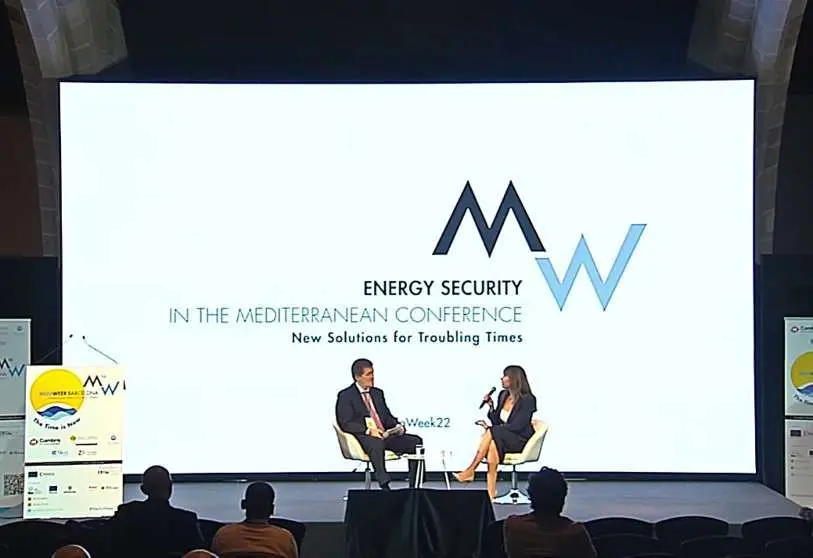MedaWeek highlights the importance of food and energy security in the Mediterranean

The international community used to call itself multilateral and interconnected, but the arrival of two successive crises in recent years - the one stemming from the Covid-19 pandemic, and the one following Russia's invasion of Ukraine - seem to have called these qualities into question. Europe, as one of the regions most heavily dependent on Russian energy supplies, and North Africa, on Ukrainian grain, are just a few examples of the dependency links that have been built up at the international level, and which have little to do with diversification and multilateralism in relations.
In this sense, the Mediterranean Economic Leaders' Week (MedaWeek), held on 16, 17 and 18 November in Barcelona, aims to serve as a space for rethinking and promoting not only the energy and agri-food sectors of the Mediterranean region, but all key economic sectors, and all the cultural values based in the territory.

The second half of the first day of MedaWeek was devoted to the "Conference on Energy Security in the Mediterranean: New Solutions for Difficult Times", which addressed some of the deficiencies, challenges and opportunities of the global energy supply - starting from the regional perspective of the Mediterranean - by experts such as the CEO of Crystol Energy, Carole Nakhle, and the professor of energy engineering at the University of Cairo and former president of NREA Egypt, Mohamed el Sobki, who participated telematically.
However, Leon Stille, CEO of the New Energy Business School, and Jessica Obeid, founder and CEO of New Energy Consult, were unable to attend the conference due to health problems, as was Houda Ben Jannet, Director General of the Observatoire Méditerranéen de l'Energie (OME), for technical reasons.

Thus, after an initial assessment in which ASCAME's Project Director, Luis Miranda, stressed the importance of strengthening cooperation, and doing so in both the public and private sectors, the specialists tried to answer questions such as possible strategic and economic solutions to optimise operations and promote viability with a view to the future, or the alternatives for linking the Mediterranean region and the European Union in order to take advantage of their resources.
In his speech, Mohamed el Sobki placed particular emphasis on the promotion of renewable energies and the physical interconnection through common infrastructures between the two regions to address the growing energy instability that the world as a whole seems to be facing.

"Still 83% of the world's energy comes from sources such as gas or oil," recalled Crystol Energy CEO Carole Nakhle, who argued that the increase in energy prices came before the invasion of Ukraine, and was therefore related to economic decisions that were taken beforehand. "Many of them were related to the supply crisis after the Covid-19 pandemic," Nakhle recalled. "Now what is needed is to improve investor confidence [in energy resource exploration and extraction projects] and boost good investment policies," he said, "we need to talk about security for energy producers, not just for consumers".
In fact, both speakers agreed on the free market approach that questioned the interventionist measures of European governments after the coronavirus and war crises, and advocated "understanding the liberalised market as a way to reduce risks", as Sobki said.

Subsequently, the round table "Conference on food security in the Mediterranean: New solutions for difficult times" brought together, once again, ASCAME's Project Director, Luis Miranda, and the Managing Partner of GO Consulting Maroc, Ali Bensouda, and the researcher of the German Regional Centre for Sustainable Development and Global Change in the Middle East (SAGE), Sara Ashour. Tarek El-Sherbini, Regional Head of Food and Agribusiness at the European Bank for Reconstruction and Development (EBRD), participated via video call; while African Agri Council CEO Ben Leyka, CEO of African Agri Council, and Global Open Data for Agriculture Nutrition (GODAN) CEO André Laperrière could not be present.
"We cannot miss the opportunity presented by a crisis to make changes and improve resilience in the food supply chain in the Mediterranean region," said Tarek El-Sherbini, explaining that it is the countries of North Africa, the region where his work is based, which he called "downstream countries", that have suffered most from the disruption of Ukrainian grain supplies. These were among the most important imports to the region.

Sara Ashour stressed the need for a new governance model, and argued that the best way to increase the resilience of European economic and agri-food policies is the diversification of trade agreements that interconnect the EU with its neighbouring regions, such as North Africa and the Middle East. Ashour also mentioned the role of technical and technological digitalisation.
Finally, Ali Bensouda, managing partner of GO Consulting Maroc, who pointed out that one of the most noteworthy conclusions of the presentation was the increase of almost 40% in the price of wheat, and who described the search for food security as imperative, said: "We have to act now. We have to remove all barriers and seek a regional vision to turn the Mediterranean into the world's agricultural farm. Right now, our biggest enemy is time, and we can only take advantage of the opportunities that exist today.








